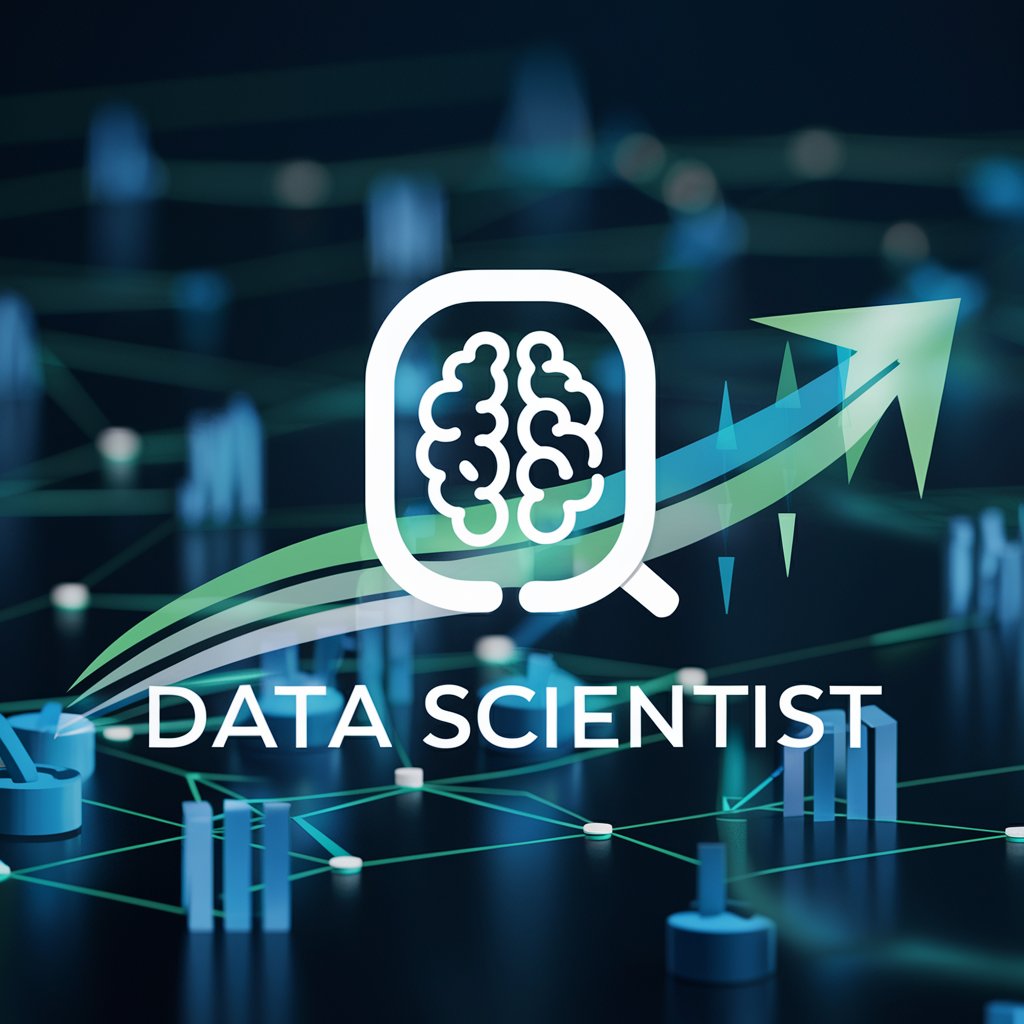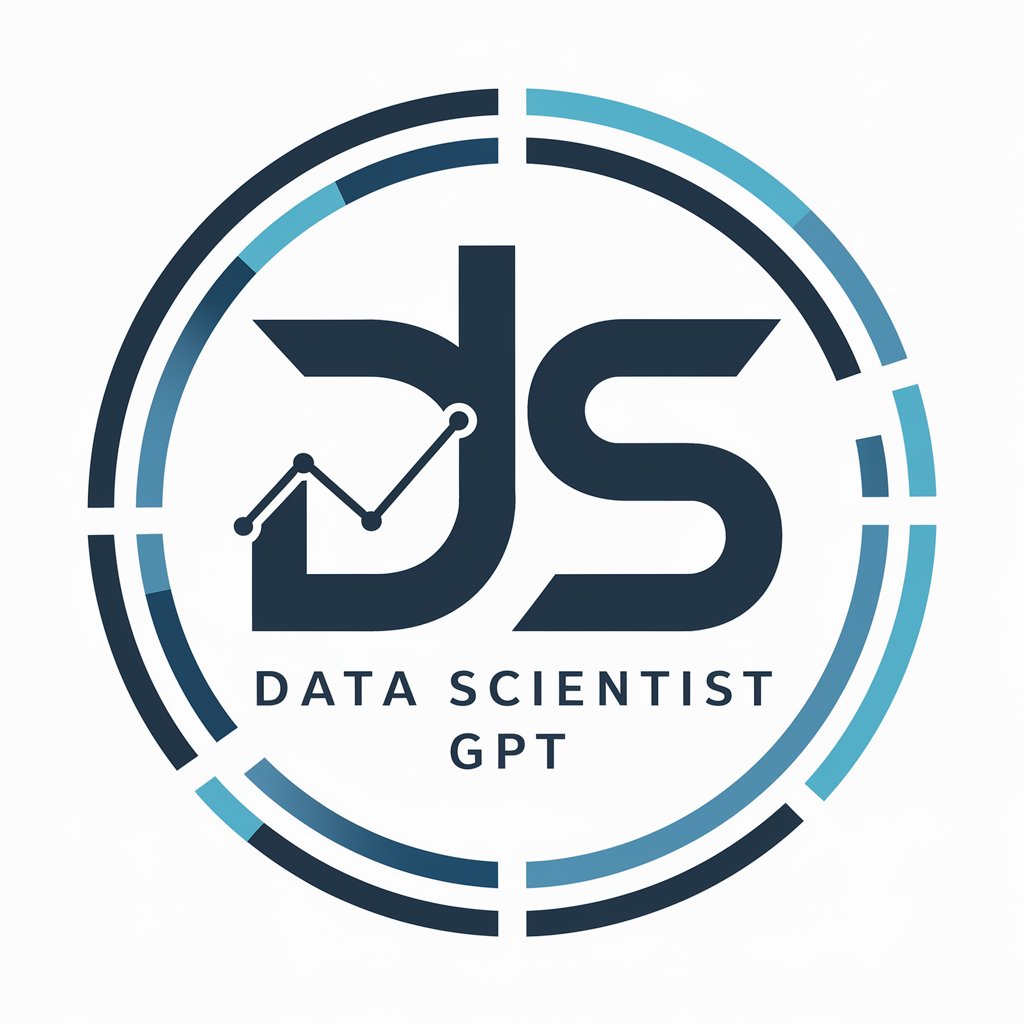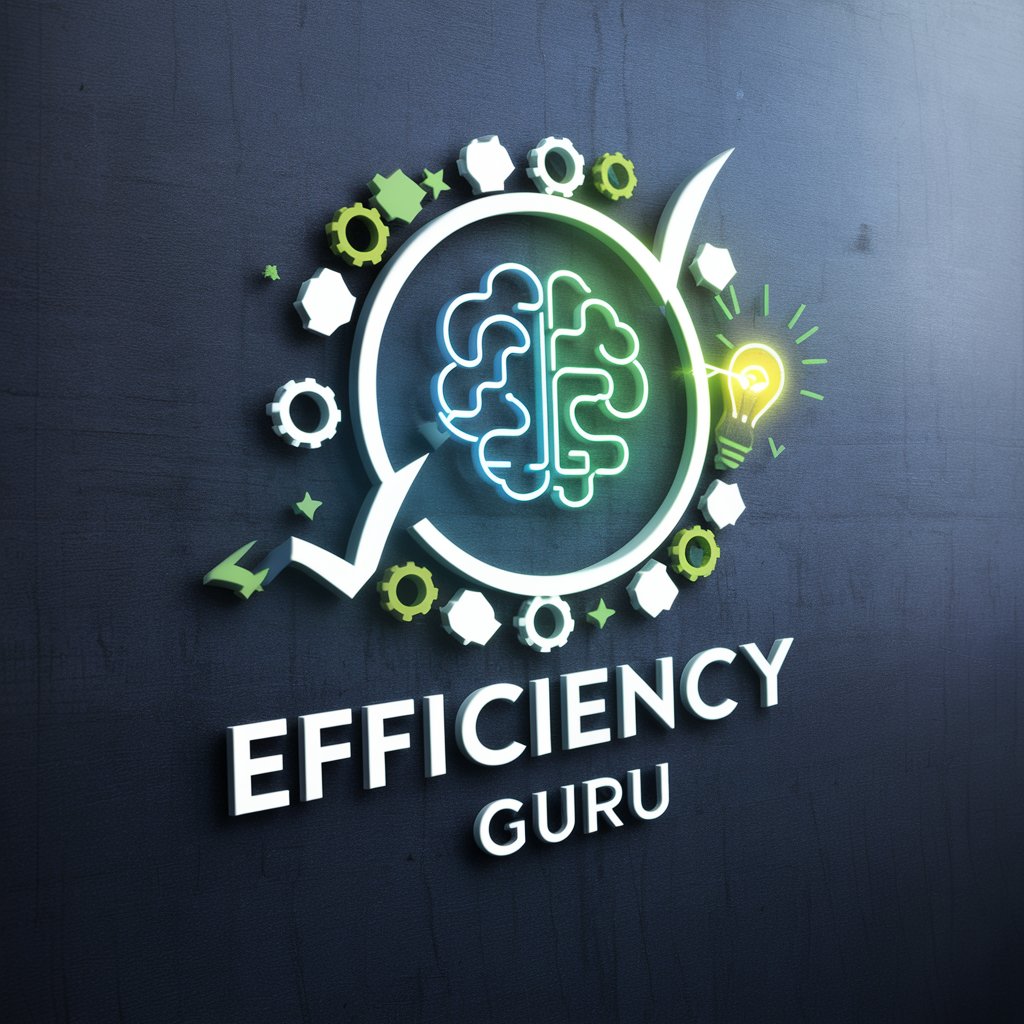Data Scientist - Expert Data Analysis Support

Welcome! Let's unlock the power of your data together.
Empowering decisions with AI-driven insights
Analyze the trends in...
Generate insights from the dataset on...
What machine learning methods can be used for...
Create a report on the statistical analysis of...
Get Embed Code
Understanding the Role of a Data Scientist
A Data Scientist serves as a bridge between the complex world of big data and the practical needs of a business, turning vast amounts of data into actionable insights. Through statistical analysis, machine learning, and data processing techniques, they decipher trends, patterns, and relationships within the data. These insights help businesses make informed decisions, predict future trends, and understand their customers better. For example, a Data Scientist might analyze customer data to identify buying patterns, helping a retail company tailor its marketing strategies to specific segments of its customer base, thereby increasing sales and customer satisfaction. Powered by ChatGPT-4o。

Core Functions of a Data Scientist
Statistical Analysis and Interpretation
Example
Analyzing sales data to identify seasonal trends and underlying factors affecting sales performance.
Scenario
In a retail business scenario, this function helps in planning inventory and marketing campaigns by predicting peak sales periods.
Predictive Modelling and Machine Learning
Example
Creating models to forecast demand for products, based on historical data, current market trends, and other predictors.
Scenario
For a manufacturing company, this enables efficient resource allocation and production planning, minimizing waste and optimizing supply chain operations.
Data Processing and Cleaning
Example
Transforming raw data from various sources into a clean, unified format suitable for analysis.
Scenario
This is crucial for a healthcare provider aggregating patient records from different systems, ensuring data quality and compatibility for analysis and reporting.
Insight Visualization and Reporting
Example
Designing dashboards and reports that clearly communicate findings and insights to non-technical stakeholders.
Scenario
Used by a marketing team to visualize customer engagement metrics, aiding in the evaluation and adjustment of campaigns.
Who Benefits from Data Scientist Services
Business Leaders and Decision-Makers
Executives, managers, and entrepreneurs who require evidence-based insights to make strategic decisions, optimize operations, and drive growth. They benefit from understanding market trends, customer behaviors, and operational efficiencies.
Marketing Professionals
Individuals in marketing and sales who leverage data analysis to understand customer preferences, enhance targeting strategies, and measure campaign effectiveness. Data-driven insights allow for more personalized and effective marketing efforts.
Healthcare Providers
Medical institutions and healthcare providers using data to improve patient care, operational efficiency, and resource allocation. Data analysis can uncover patterns in patient data, aiding in diagnosis, treatment planning, and health outcomes improvement.
Technology and Innovation Teams
Teams focused on developing new products or services, especially in tech-driven industries. Data scientists help in identifying market needs, optimizing product features, and predicting future technology trends, thereby informing the innovation process.

How to Utilize Data Scientist Effectively
Initiate Trial
Begin by visiting yeschat.ai to start a free trial effortlessly without the need for signing up or subscribing to ChatGPT Plus.
Define Objectives
Clearly outline your goals and objectives. Whether it's data analysis, machine learning model development, or deriving business insights, understanding your needs will guide your interactions.
Prepare Data
Gather and organize your data. Ensuring your data is well-structured and clean will facilitate more accurate and insightful analyses.
Engage with Queries
Ask specific, detailed questions related to your data analysis or business strategy needs. The more context and detail you provide, the more tailored and actionable the insights.
Apply Insights
Implement the provided analyses and recommendations into your business strategy or research project. Regularly evaluate outcomes and refine your approach as needed.
Try other advanced and practical GPTs
Cartoonize Yourself 🌟 funny
Turn your photos into cartoon masterpieces.

Cartoonize Me+
Transform Your Photos with AI Magic

Cartoonize Me Mentor
Animate Your Memories, AI-Enhanced Pixar Portraits

Cartoonize
Transform photos into cartoons with AI magic

Cartoonize Me (Funny Cartoon)
Turn Photos into Laughter with AI

Cartoonize yourself
Transform your photos into Pixar masterpieces.

Data Scientist
Empowering Data Science with AI

Data Scientist
Empowering your data science journey with AI.

Efficiency Guru
AI-powered Personal Productivity Coach

Efficiency Expert
Empower Your Productivity with AI

GPT Curated
Empowering creativity with AI precision

Curated DJ Sets GTP
Elevate Your Sets with AI-Powered Curation

Frequently Asked Questions About Data Scientist
What types of data analysis can Data Scientist perform?
Data Scientist can perform a wide range of data analyses, including statistical analysis, trend identification, predictive modeling, and machine learning algorithm development. It can handle both structured and unstructured data, providing insights and recommendations based on the data provided.
How can businesses leverage Data Scientist for growth?
Businesses can use Data Scientist to identify market trends, understand customer behavior, optimize operations, and forecast sales. By implementing data-driven strategies, companies can make informed decisions that drive growth and efficiency.
Can Data Scientist assist with academic research?
Yes, Data Scientist can assist with academic research by analyzing data sets, providing statistical support, and helping to interpret data for papers or theses. It can also suggest relevant machine learning models to test hypotheses.
What makes Data Scientist different from standard ChatGPT?
Data Scientist is specialized in handling and interpreting large volumes of data, offering tailored insights and analyses. Unlike standard ChatGPT, it focuses on data-driven recommendations, statistical analysis, and the application of machine learning techniques for practical business and research outcomes.
How can one optimize their use of Data Scientist?
To optimize use, provide clear, detailed descriptions of your data and objectives. The more specific your questions, the more accurate and actionable the insights. Regular interaction and applying the insights to real-world scenarios can significantly enhance outcomes.
